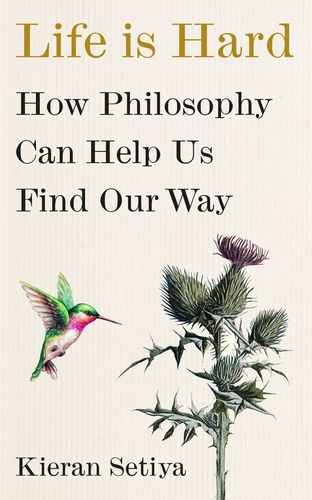Life is Hard: How Philosophy Can Help us Find Our Way
- Spartan Stoic

- Mar 31, 2023
- 3 min read
by Kieran Setiya
Kieran Setiya, teacher of philosophy at MIT, looks at how life is hard and whether philosophy has any answers to such a problem. What is the meaning of life? Why is there pain, loneliness, grief or injustice? Finally, he turns to the question: is hope the answer?
The book is only 180 pages – which, personally, I’m not sure is adequate to really cover these questions. Instead, this book serves as more of a philosophical introduction to these topics, by drawing upon anecdotes as well as philosophical thought and ideas. In it we encounter Socrates, Plato, Aristotle, the Stoics, Epicurus, Dostoyevsky, Kierkegaard and more in trying to find the answers for some of these questions.
The structure of the book comprises chapters based around the aforementioned problems of pain, then loneliness, then grief and so on. Each is dealt with in turn, and each is fairly short, typically around 30 pages. There’s brief exploration of the dilemma, wider social and cultural experiences of them and often what we can do in terms of accepting them. The thesis of the Stoics, for example, that any pain can be accepted, is rejected.

For a topic I do know a thing or two about, I wouldn’t say the critique was carried out to a satisfying extent. It really boiled down to saying that there are some painful experiences that are too much to bear, and hence the Stoic critique of perception isn’t really adequate. To this, I would say observe the happiness of some people that survived the Holocaust, such as Viktor Frankl. Such a thesis seems to ignore the strength of some people despite unimaginable tragedy. Or look at religions, say, Buddhism practitioners who teach that any pain can be accepted, if trained well to bear it. In any case, regardless of whether you agree or disagree, the arguments for and against weren’t really borne out enough to have any meaningful input on the debate. They felt too surface-level for a topic I’m well read on.
There was better analysis of Dostoyevsky, and the discussion and writing of The Idiot. Dostoyevsky expounded in the book that everything really is about the journey, not the destination: the author wrote The Idiot as he went along, and did not have everything planned out. It still turned out a to be a great book (see my forthcoming review) but as Setiya explores, it also signposted Dostoyevsky’s recommendation of living in the moment, rather than seeking the destination.
As a writer, Setiya is easy to read, even when discussing difficult topics. I think some of the personal moments were worth including, although sometimes he writes as if strangely distant and as if he wasn’t totally sure of his own feelings – something that does get in the way if you’re trying to write a philosophical book about these topics of suffering. I do wonder if the book needed more time to clarify these sections, it came across as quite odd when the author doesn’t really seem sure of his feelings – dispassionate as that may sound. The complete opposite was true when he speaks of his chronic pain – it eludes sympathy, was well thought out, and quite enlightening for somebody that does not live with such a challenge. These were the most touching and personal moments, exploring coming to terms with it and also being advised to imagine living like there will be a time when the chronic pain ends. I can’t imagine how tough it is to have no respite to pain, and this section was both gentle and illuminating.
Final Score
This is a short work exploring some challenging topics. It’s good as an introduction for people interested in moral philosophy, who want to gently enter into these topics before reading more daunting philosophical work. The problem is it sometimes feels strangely distant, and even shallow, so any experienced reader will find it rarely reaches enough depth. Having said that, it was an enjoyable read, with interesting anecdotes, and the ultimate conclusions were ones I found to be intelligent. A reasonable read, but not an excellent one, that experienced fans of the genre can probably skip.
6/10



